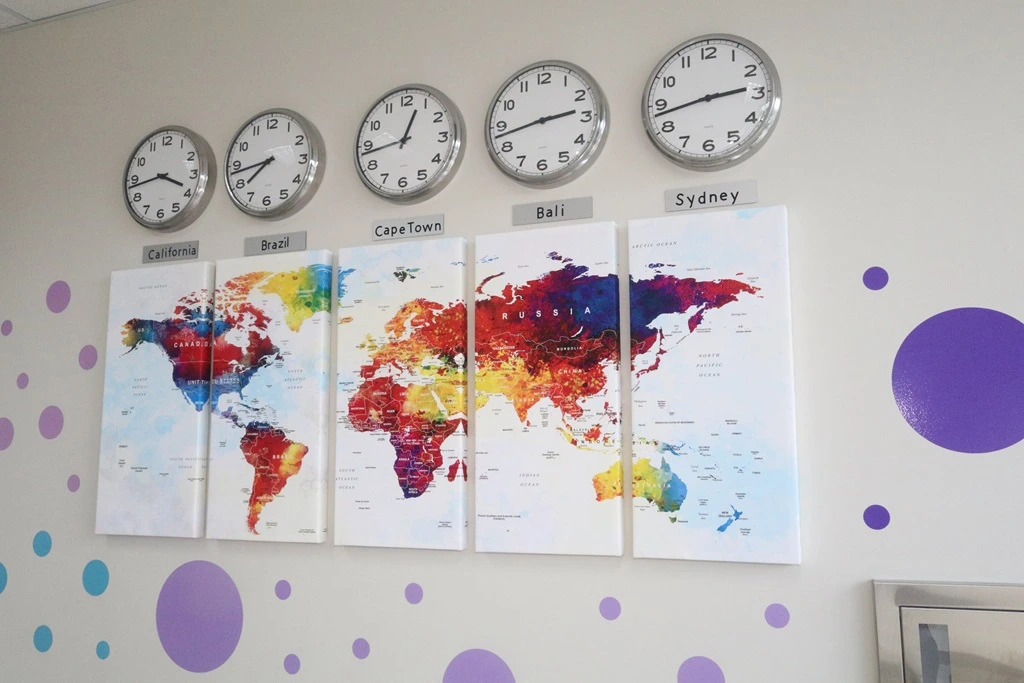Businesses across industries face growing pressure from rising customer expectations, labor costs, and operational inefficiencies. Retaining loyalty has become more expensive, while failing to personalize interactions risks lost revenue and damaging trust. Executives now search for scalable solutions that can balance cost reduction with the consistent delivery of high-quality, customer-first experiences.
With years of expertise in outsourcing strategies and process optimization, this guide provides actionable insights for decision-makers in retail, e-commerce, healthcare, finance, IT, and professional services. Leaders exploring competitive ways to strengthen customer engagement will find comprehensive approaches to implementing personalized customer service, from technology adoption to outsourcing models that maintain efficiency and cost-effectiveness.

What is Personalized Customer Service
Personalized customer service means tailoring experiences to each customer’s needs using data, insights, and preferences. This approach builds stronger relationships, boosts satisfaction, and drives loyalty by showing customers they are understood and valued.
With tools like AI, CRM systems, and automation, businesses can track customer behavior across channels and provide faster, more relevant support. Examples include personalized discounts based on purchase history or appointment reminders from healthcare providers.
Technology alone isn’t enough—staff must also use empathy and cultural awareness to keep interactions genuine. With customers having more choices than ever, personalization is what helps businesses stand out.
The Business Case for Personalized Customer Service
Investing in personalized support goes beyond customer satisfaction—it directly ties to measurable business performance. Brands across industries recognize that personalization fuels loyalty, cross-selling, retention, and overall revenue impact. Research from McKinsey found that personalization increases revenue by 10 to 15 percent while improving customer retention rates significantly. Customers are also 78 percent more likely to repurchase from companies that personalize their experience, according to a global Deloitte consumer study.
Another critical driver is the cost efficiency derived from personalization. By reducing repeat inquiries and empowering customers with proactive, relevant solutions, businesses lower overall service volumes. For example, predictive support can anticipate where customers might encounter issues and resolve them in advance through self-service channels. This approach not only improves the perception of convenience but also significantly reduces call center costs.
From a competitive standpoint, personalization builds differentiation in markets where products and services are otherwise commoditized. Companies that fail to prioritize tailored engagement risk losing customers to competitors offering seamless, intuitive experiences. Industries like e-commerce, consumer finance, and healthcare are prime examples where customer loyalty hinges on trust, relevance, and ongoing value-added interactions.
Core Components of Personalized Customer Service
Personalized customer service is built on essential components that work together to deliver meaningful experiences. Understanding these elements highlights their importance in creating stronger connections and long-term customer loyalty.
Customer Data and Insights
Businesses require comprehensive data collection through CRMs, analytics, and customer journey mapping. These insights allow accurate segmentation, enabling hyper-personalized approaches such as tailored recommendations, custom discounts, and proactive support.
Omnichannel Integration
Customers expect seamless experiences whether they engage via phone, live chat, email, or social platforms. Integrated systems ensure continuity, allowing agents to recognize returning customers and maintain context throughout conversations.
AI and Automation Tools
Virtual assistants, chatbots, and predictive analytics streamline service while maintaining personalization. AI models interpret preferences, anticipate needs, and route inquiries intelligently, supporting more efficient and personalized agent interactions.
Agent Training and Empowerment
Technology alone cannot deliver personalization. Service representatives must be trained in empathy, communication, problem-solving, and cultural flexibility to complement digital systems with a human touch.
Feedback and Continuous Improvement
Frequent monitoring of satisfaction scores, NPS (Net Promoter Scores), and customer sentiment analysis ensures programs are refined continuously. Businesses must actively collect feedback and adjust accordingly to sustain relevance.
These components form the foundation of scalable and effective personalization initiatives. They blend technology-driven efficiency with a human-first service approach, ensuring positive customer outcomes while preserving cost control goals for global enterprises.

Benefits Across Key Industries
While personalized customer service benefits every industry, the competitive edge is particularly visible in specific sectors:
Retail and E-commerce
Personalized product recommendations, tailored promotions, and loyalty programs enhance revenue per customer. Amazon is an iconic example, with AI-driven personalization guiding significant portions of its sales.
Healthcare
Personalized outreach through appointment reminders or testing recommendations enhances patient compliance while driving trust in healthcare providers. HIPAA-compliant personalization ensures security alongside engagement.
Finance and Banking
Customized financial advice, proactive fraud alerts, and targeted credit offers build customer confidence, particularly in sensitive matters of personal finance.
IT and Technology
Personalization in help desk experiences ensures faster resolution times while reducing friction through predictive support systems and knowledge base customization.
Professional Services
Legal and consulting firms leverage personalization to nurture client relationships by tailoring communications and service delivery to client-specific contexts.
In every scenario, personalization reduces churn by ensuring customers feel valued and understood—significantly influencing brand advocacy through referrals and repeat purchases.
How Outsourcing Advances Personalization
Scaling personalized customer service in-house can be difficult, requiring major investments in talent and technology. Outsourcing offers a cost-effective way to expand quickly, giving businesses access to advanced tools and multilingual support teams without the heavy expenses.
Call center outsourcing, especially in top hubs like the Philippines, provides trained professionals skilled in empathy, cultural understanding, and managing communication across multiple channels. Many providers also use AI and analytics to deliver smarter, more personalized customer experiences.
With outsourcing, companies benefit from 24/7 global coverage while keeping their internal teams focused on core priorities. It also ensures customer service grows with market demands while meeting strict compliance standards such as GDPR, HIPAA, and PCI DSS.

Step-by-Step Implementation of Personalized Customer Service
Implementing personalized customer service requires a structured approach to ensure consistency and scalability. Following clear steps helps businesses deliver tailored experiences that strengthen loyalty and improve overall customer satisfaction.
Define Objectives
Start by setting clear goals, whether it’s improving retention, boosting cross-sell opportunities, or driving new customer acquisition. Clear objectives ensure personalization strategies remain aligned with business priorities and measurable outcomes.
Audit Existing Capabilities
Evaluate current customer service tools, employee skill sets, and technology infrastructure to spot strengths and weaknesses. This audit helps identify gaps that need to be addressed before scaling personalization efforts.
Segment Customer Base
Leverage demographic, behavioral, and purchase data to group customers into meaningful segments. Doing so allows for tailored communication strategies that resonate more deeply with each audience.
Deploy CRM and Automation
Adopt cloud-based CRM systems that centralize customer data and streamline workflows. Automation tools can then personalize interactions across multiple channels while reducing manual effort.
Train Employees
Provide teams with training in empathy, communication, and problem-solving to enhance every customer interaction. Combining these soft skills with actionable insights ensures a more authentic and personalized service.
Integrate Outsourced Support
Collaborate with trusted BPO providers to expand capacity without compromising quality. Outsourced teams should be aligned with brand values, compliance standards, and the desired customer experience.
Track and Optimize
Monitor performance through KPIs like resolution time, CSAT, and customer effort scores. Consistently analyzing these metrics enables continuous improvement of personalization initiatives.
This structured approach ensures businesses execute personalization strategies purposefully, balancing technological adoption with emotionally intelligent human engagement.
Key Metrics to Measure Success
Tracking effectiveness requires constant evaluation through important customer service metrics:
| Metric | Purpose |
| Customer Satisfaction (CSAT) | Measures customers’ immediate satisfaction following an interaction. |
| Net Promoter Score (NPS) | Evaluates long-term loyalty and the likelihood of referrals. |
| Customer Effort Score (CES) | Determines ease of resolving issues through personalized interactions. |
| First Contact Resolution (FCR) | Tracks success in resolving inquiries at first engagement, reducing frustration. |
| Lifetime Value (CLV) | Assesses profitability over the long term for personalized retention strategies. |
Using these benchmarks, businesses can measure the ROI of personalization, illustrating the balance of cost-efficiency and customer loyalty improvement.
Scaling With Technology and Outsourcing
The most effective personalization programs combine data-driven technology with outsourcing. AI consists of chatbots, recommendation engines, predictive support tools, and customer insight platforms, while outsourcing providers deliver skilled, multilingual talent available 24/7 to maintain engagement quality. By merging these approaches, companies reduce in-house strain and maximize customer satisfaction at scale.
Cloud adoption, especially in SaaS-based CRM and analytics platforms, further empowers businesses of all sizes to compete against larger enterprises. Equipped with outsourced support and digitized infrastructure, companies can pivot quickly, adapting personalization strategies across different markets globally.
Drive Customer Loyalty Through Personalization
Delivering meaningful experiences ensures customers are not only retained but also become advocates. Businesses that sustain trust, empower interaction, and provide memorable experiences foster stronger market differentiation. Leaders relying on strategic outsourcing enhance their ability to implement customer service outsourcing that accelerates personalization programs without overextending budgets or in-house teams.
Frequently Asked Questions
What is personalized customer service?
Personalized customer service is a strategy where companies tailor interactions to individual customer needs using data, insights, technology, and empathetic communication. It ensures each engagement feels unique and relevant, increasing loyalty and reducing churn.
How can businesses measure success in personalization?
Success is measured by KPIs such as Customer Satisfaction (CSAT), Net Promoter Score (NPS), Customer Effort Score (CES), and First Contact Resolution rates. These show if personalization is improving both experience and efficiency.
Why do companies outsource personalized customer service?
Companies outsource to scale cost-effectively, access multilingual skilled staff, gain 24/7 support across time zones, and leverage provider technology. Outsourcing streamlines personalization without heavy internal investments.
Which industries benefit most from personalization?
Industries like e-commerce, retail, finance, healthcare, and technology see the highest impact. These sectors handle high transaction volumes and rely heavily on trust and customer loyalty.
What role does AI play in personalized customer service?
AI enables predictive support, automated recommendations, and self-service tools. It reduces repetitive inquiries, supports human agents with real-time insights, and ensures faster, context-driven interactions with customers.







